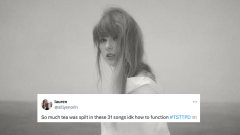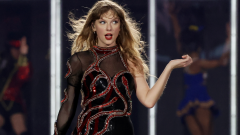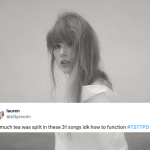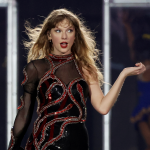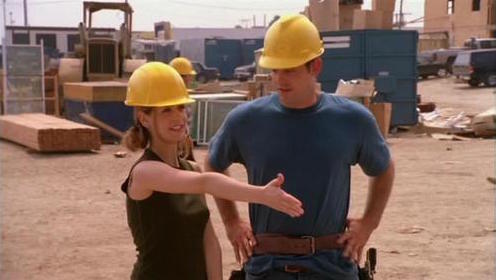
As part of International Women’s Day, we’re resharing this piece from 2018, when we interviewed eight Aussie women working in male-dominated industries.
Back then, then gender pay gap was $239.8. In 2021, it’s risen (slightly) to $242.90 per week. We’ve come a very, tiny, smidge of a way in three years, but there’s still a long way to go – particularly in achieving parity for trans women, disabled women, and women of colour, and in curbing the rising rate of women over 45 experiencing homelessness.
This series of interviews looked at what’s changed about being a women working in a traditionally male-dominated space, and how far we still have to go.
(Some of these interviews have been edited for clarity.)
Bec Charlwood, stand-up comedy
I was lucky to start out in Perth, which is a really small comedy scene which means more support. Looking back I don’t know how much of that support was boner orientated because it was 90 percent dudes and I was very naive, but having a close group of friends in comedy definitely helped me stick at it.
I think at the moment, with the whole #MeToo campaign that’s come out, a lot of women have become more confident, and everyone had less patience for the dickheads. A lot of dudes in comedy are wanting to know what they can do, and are really freaked out by [what they’ve heard]. There’s also a few monsters coming to the surface, but from my perspective, there’s been a lot of interest and awareness and wanting to know how they can change and do better.
I think every female comedian has a story about someone overstepping the line and not understanding. But recently, most conversations I’ve had are with people who are generally upset by it and want to do their best. I’ve been out on the road with a bunch of comics who are really old school, a lot of middle aged white guys, doing regional gigs out in Wagga Wagga and Port Macquarie, and I was dreading it the whole time being like, they’re just going to talk shit and make jokes about me, and all they wanted to talk about the whole time was what was going on with women in comedy and how they can help. It blew my mind and made me so happy.
The best of it for me is being able to talk about it for more than five minutes without being interrupted. More women need to do it! It’s great, you can just talk for ages, and if someone interrupts you, everyone’s on your side.
Definitely there’s still a lot of promoters and bookers who are unaware of all-male lineups, a lot of agencies who still book and pay men who are horrible to women a lot of money, it’s just like, “We know he’s the worst person ever, but he makes us money, so sorry”. That’s super disappointing. I feel like it’s moving in the right direction. It’s going to be slow, and there’s going to be a lot to come out of the woodwork, but it’s definitely moving in the right direction.
Caitlin*, computer programming
Getting into the industry, I didn’t have any blockers at all. There are times when I’ve worked with people they have not been as receptive to women as they are to the other men in similar levels in the team, but the company as a whole has been super good to me. But I speak to other people in other companies who obviously have bigger issues with the male / female divide.
[Sometimes men who are less receptive to women working in programming] might question me more about why I’m doing it the way I’m doing it, or how long it’s going to take, whereas they kind of left the other guys to their own devices.
But that’s one or two people I’ve worked with. You have the other side where people are super supportive and love the fact that you bring a different perspective and a different style of work.
I think a lot of people think that programming is a skill which men are more skilled at. It’s not at all. I think people think it’s very maths-y and analytical, but you actually don’t really need that sort of mind to be good at it.
It is super welcoming, but in my company there are five women out of 22, and in my dev team there are two out of five. It’s not that it’s not welcoming, it’s just that the equality in numbers isn’t there. I talk to my senior people about that, and they say – with sales, for example – that there just aren’t as many girls applying for the job. So they’re trying, but the numbers aren’t there.
Being in an industry where you are the minority you really have to find your voice, stand up for yourself and become a lot tougher which is actually really empowering. Feeling like you are valued in an industry where you have had to fight makes the job that much more rewarding.
Jen*, mining
I feel that it is more acceptable now to see women in mining and in various roles. In a way I feel like I got into my first hands on workshop role just because they needed to up the numbers with women. I did have a genuine interest and I got offered the role because I was always in the workshop looking at the trucks!
More recently I had a negative experience with a leading hand where I felt bullied and disrespected. When I brought it to the attention of my supervisor he stated that he doesn’t believe that I should be treated any different to any of my workmates. I replied that it doesn’t matter if I am a woman or not, bullying is unacceptable. So in that respect I think management is yet to be trained in the management of women in the workplace because even though we want to be treated equal, there’s also a different way of speaking to women and resolving issues. Men kinda just say “Yeah mate, no worries” or “Piss off”! But women are a bit more emotional and resolve issues differently. So I think that’s a huge thing that is still yet to be addressed.
Being a woman in mining I also feel like you are watched that little bit closer in regards to job performance and any little thing that you do is pretty much picked up on. One site I worked at back in WA there was an older fella on another crew that disapproved of me and never spoke to or acknowledged me and would even waste his energy saying to other crew members that I couldn’t even change a filter, even though we had never worked together! So you always get the old school fellas that just don’t accept you. But I have learnt to just look past that and keep doing my best.
I’m always going to need assistance for certain heavy tasks and guys tend to think you can’t do your job if you can’t do it alone as they will always bust their bums instead of asking for help. Me if there’s help there, there’s not point hurting myself to get a job done. I’m happy to ask for help! So that’s definitely one difference I’ve noticed between the fellas and myself.
Some men still don’t agree that women should be on a mine site. Whether that’s because they don’t want us to get hurt, or they just don’t think we can do as good a job as them, or even feeling threatened, it depends.
Ally McLean, gaming
I don’t know whether it’s my progression into the industry, or whether it’s the industry as a whole, I think it might be a bit of both, but I feel like that has grown, definitely, and particular in the last couple years. I have my tribe of awesome women around me and people who are doing really incredible things and shaking up the industry and challenging preconceptions.
We’ve just recently started the Working Lunch, which is a mentorship program for entry-level women in games. So we started that with the Interactive Games & Entertainment Association (IGEA), so that’s been really awesome, just to see how much industry support there is for an initiative like that, and be able to get funding for it, and to get so many incredible women from so many different backgrounds and disciplines who are so accomplished and have them all give up their time because they want to see more women gain employment and revolutionise the industry.
We are moving in a positive direction, but we have so far to go. There are so many teams, mine included, where there are one or few women on the team, or there aren’t any women in executive positions. We have so far to go. Not only just for women, but for all underrepresented groups. We’re still predominantly a white male industry, so we’re definitely making steps, but a lot of work needs to be done. There are still conferences announcing lineups that are entirely just men. If that’s still happening, there are still leaps to be made.
I think what a lot of particularly young girls who are at a high school level, or just after, what they don’t realise that working in games is so much more than just becoming a programmer, or a designer, or being an artist or a writer or whatever. There are so many types of roles in the games industry for people of all different disciplines and backgrounds. There really is a space for everyone. I came into games with no qualifications and very little relevant experience, I still have managed to find a job that I really love and a team I really love and I’m making projects that I’m really passionate about. There’s space for people of all kinds.
Follow Ally on Twitter here: @allymcleangames
Jas Rule, film
My first day of film school, one of my peers was surprised when I said I wanted to be a director and replied, “I didn’t realise women could direct”. I’d seen sexism, but the first time I saw it in a way that could affect my career it terrified me.
The reason I changed film schools was because of sexism at my first college. There was one guy… you can think and think, “what have I done to make him not like me?” but eventually you have to face up to the fact that it might be something else. He would never, ever take my direction on set. I’d end up having to ask a male colleague to ask him to do anything.
At my second film school, there was a director I admired, and he needed a first assistant director (1st AD). I reached out to him and offered (it’s a very collaborative school, everyone helps each other with their works). He came back to me and asked if I wanted to be the butterfly wrangler. I said no, and that I wouldn’t feel comfortable wrangling live animals, but he still wasn’t cool with the idea of me being AD. He ended up doing both the director and the AD roles himself.
Producing is seen as more of a woman’s role, because it’s administration. To direct you have to be in control and dominant, which is seen as more masculine. And cinematography is seen almost as a trade, which is again masculine. It’s partly why I always carry my own equipment and don’t let anyone help me – I don’t want anyone to think I’m not capable.
Nastassia Baroni, music journalism
I was plagued by a lot of insecurities when I first started in terms of my writing and reporting abilities and the breadth of music knowledge I was bringing to the table. Imposter syndrome and all. I think it’s something a lot of young professionals experience but I’ve noticed, at least anecdotally, that this internalisation of inadequacy seems to skew greatly towards young women.
I had one male editor when I started who would constantly question my “music knowledge” when I made mistakes or simply admitted to not knowing something, in a way I didn’t see him doing to other male writers. He played into this hierarchy of taste, often dismissing my experience as a young, female music fan.
Over time, through taking on more senior roles I’ve become more confident in trusting my instincts and decisions. That comes with time, but it’s also undoubtedly because I’ve been able to work alongside so many more women in the music industry over the last few years. Seeing other women fight and grow and succeed in all facets of this industry (from writers to fellow editors, photographers, publicists etc) has been an invaluable motivator.
Not to say those experiences don’t still happen. Just last year I assigned a female journalist an interview with an artist and the male publicist felt the need to email me to “make sure she’s on top of things” and warned me that she can be “flakey”. There’s a lot of work to be done.
[Something people outside of the industry might not know is that] there are so many hard working, creative and driven women in music media who often work behind the scenes unacknowledged.
Being able to see more women rise to senior roles in the music media industry is imperative. Younger women need to be able to see themselves holding a position of influence. A diversity of voices and decision makers is only going to make the industry stronger.
Follow Nastassia on Twitter here: @nastassiabaroni
Lucy Zelic, sports journalism
When I reflect on my first year of working as a sports presenter, much of it feels like a blur. At the time, I was an unknown 26-year-old with no exposure to public scrutiny or the world of television. I wasn’t used to be chastised on social media and having my credibility or appearance questioned so I found that period to be quite challenging. With that said, you can’t ‘expect’ respect in an industry like this, you have to earn it. From the audiences, to the footballers, administrators, coaches and my colleagues; I understood that in order to survive, I had to establish that my dedication to the game and my work was genuine. Almost five years on, I can comfortably say that I am not interested in building a ‘public profile’ nor do I care about opinions around my clothing or my appearance – it’s all irrelevant to my purpose. For me, it’s about acting in the best interests of the game and knowing that I’ve stayed true to myself in the process. Getting to this point has taken time but now that I have, I am enjoying my role now more than ever.
I’ve heard some horror stories in my time but I am one of the rare few who fall into the ‘positive experience’ camp. So much of this has to do with my work environment because from the moment I stepped foot into SBS, they never treated me differently and by that, I mean as a woman. From both a personal and professional perspective, I’ve never wanted to be ‘handled with care’ or be given exceptions because of my gender. If I make a mistake, I want to hear about it and if there’s a difficult conversation to be had, I want to be given the chance to debate it without taking things personally. As a sporting code, I feel we’re one of the leaders when it comes to the inclusion of women and I am immensely proud of that.
Whether you’re a man or a woman, if you’re passionate about a particular sport, you should be given the opportunity to contribute. It’s really as simple and as complicated as that. On a personal note, I’d also much rather someone get stuck into me about my preferred football tactics than what dress I was wearing on our Premier League coverage. Let’s make it more about the work and less about the gender.
Follow Lucy over on Twitter at @LucyZelic or on Instagram at @lucyzelic.
Bushra Abel, telecommunications
You can visibly see more women in senior leadership roles with the industry and across multiple disciplines like commercial, product, marketing and technology (network engineering and IT) now. Having more women in these roles, ensures that when key business decisions are made, opinions are diverse. Many studies point to the more information diversity when solving for complex problems, the more profound the outcome. For me in particular, as we create content and entertainment products, our content decisions are well rounded.
Recent positive experience is Optus’ strong flexible working culture, which is beneficial for all parents. Having the flexibility to work from home, and with child care facilities on campus, this ensures we don’t lose top talent when they return from parental leave.
[To encourage more women in telco we should] continue to drive more mentoring and flexible working practices whilst continuing cultural change where women’s contributions are respected and voices are heard. We should drive to encourage and inspire women to move into senior leadership roles. Quoting Sheryl Sandberg: “If more women are in leadership roles, we’ll stop assuming they shouldn’t be.”
* Some names have been changed.


